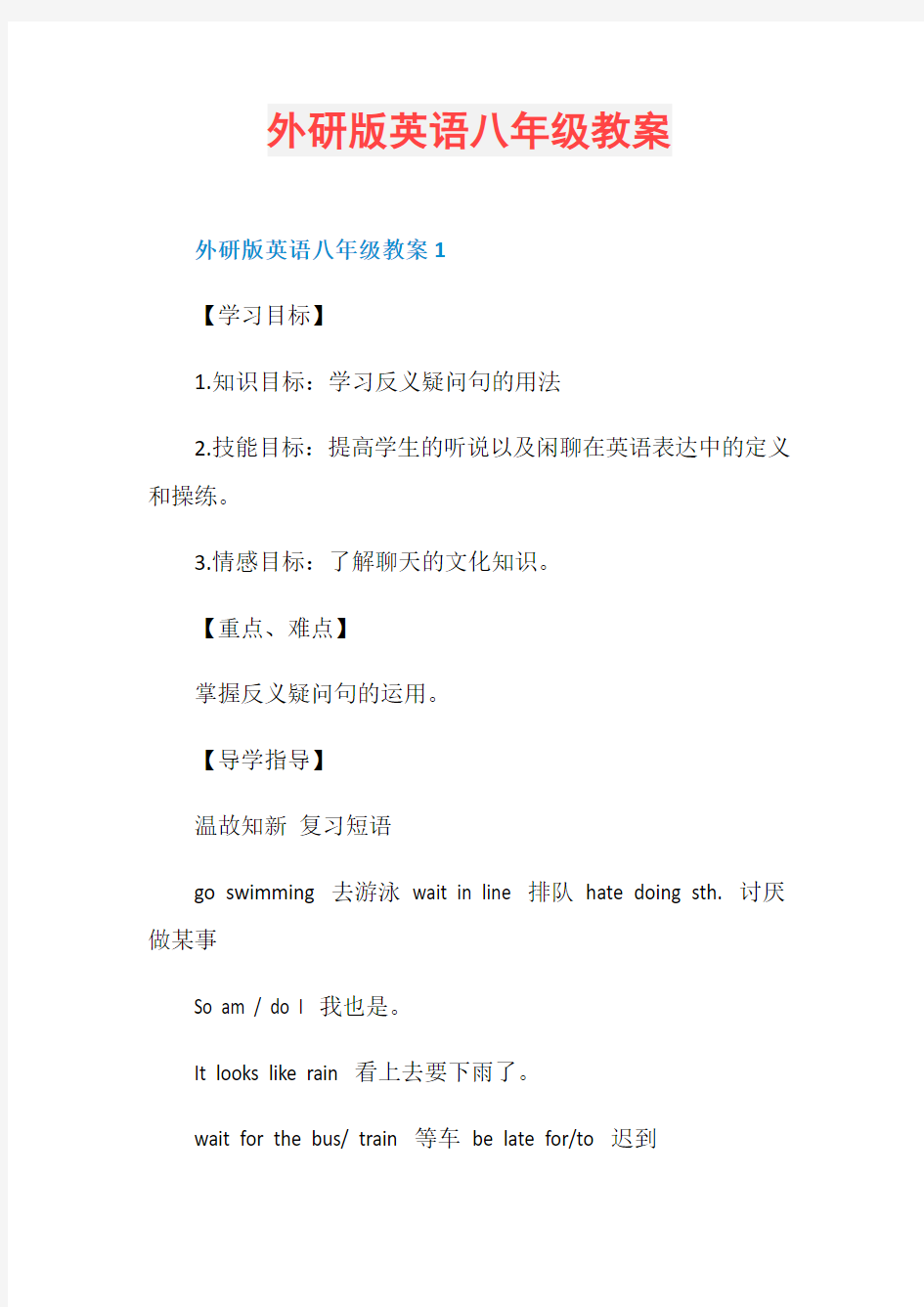外研版英语八年级教案


外研版英语八年级教案
外研版英语八年级教案1
【学习目标】
1.知识目标:学习反义疑问句的用法
2.技能目标:提高学生的听说以及闲聊在英语表达中的定义和操练。
3.情感目标:了解聊天的文化知识。
【重点、难点】
掌握反义疑问句的运用。
【导学指导】
温故知新复习短语
go swimming 去游泳wait in line 排队hate doing sth. 讨厌做某事
So am / do I 我也是。
It looks like rain 看上去要下雨了。
wait for the bus/ train 等车be late for/to 迟到
I hope so/not. 我希望如此/我不希望这样。
自主互助学习
1、学生观察1a中的图片相互提问:A:what can you see in picture 1?
B: I can see……. A:What are they doing? B: They are …….(学生通过相互提问熟悉图画内容,为听力做准备。)
2、教师让学生归纳1a-2c中所出现的反意疑问句,让学生观察、总结反意疑问句的构成。知识剖析: 反意疑问句要点简述反意疑问句又叫附加疑问句,是在陈述句后,对陈述句所叙述的事实提出的疑问。
其基本结构有两种:一是“肯定陈述句+简略否定问句”;
二是“否定陈述句+简略肯定问句”。
反意疑问句的前后两部分在时态、人称和数上都要保持一致。
如:It looks like rain, doesn’t it?
He doesn’t need to work so late, does he?
几种特殊情况:
1. 陈述部分是there be 句型,疑问部分也用there be 句型。
There is a book on the desk, isn’t there?
2. 陈述部分如有nothing, nobody, never, few, little, hardly
等否定词时(不包括加否定前缀变来的,如:dislike, unhappy等),疑问部分用肯定形式。
They have never been to the farm, have they?
There is little water in the glass, is there?
He dislikes history, doesn’t he?
3. 陈述部分为祈使句时,反义部分用will you , won’t you 。以Let’s开头的祈使句,疑问部分用shall we .
Go to the cinema now, will you?
Let’s have a party, shall we?
4. 陈述部分含宾语从句时,疑问部分一般反问主句,但主句含有I/We think/believe/suppose … 时,疑问部分要反问从句(要注意否定转移情况)。
He knew that the woman was a thief, didn’t he ?
I don’t think he is a good student, is he?
外研版英语八年级教案2
课堂作业
I. Match the sentences
( )1. Could I speak to Sam,please?
( )2. Would you like to come to my birthday party tonight? ( )3. May I come in?
( )4. What about going out for a walk?
( )5. Shall I open the door?
( )6. Will you (please) lend your pen to me?
a. Good idea!
b. Yes,please.
c. Certainly. Hold on,please.
d. I’d love to.
e. Sorry,I’m afraid not.
f. Come in,please.
II. Translate the sentences into English.
